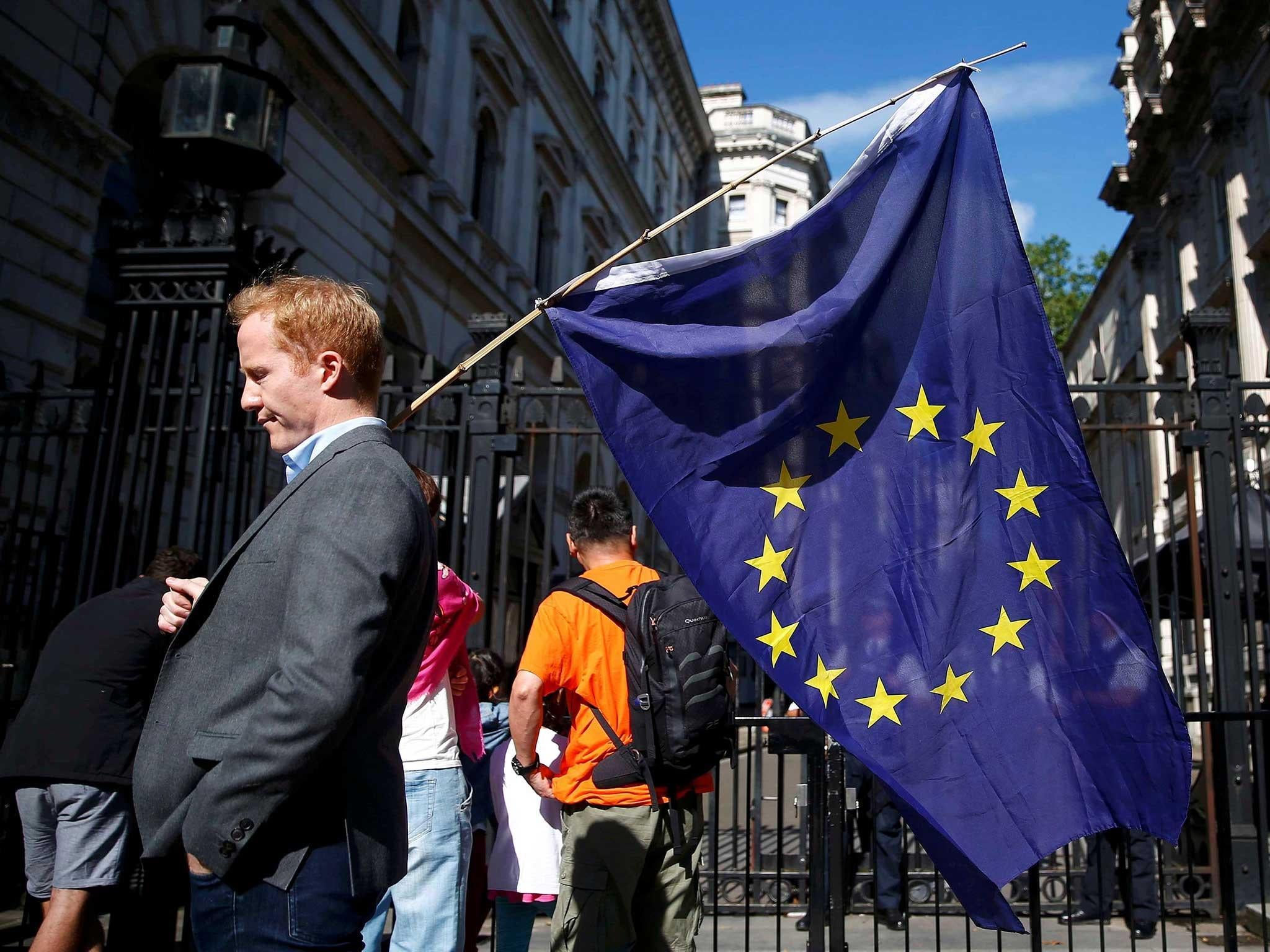Germany warns the UK Brexit discussions 'will be very difficult'
'If the British want full market access but want to limit the access of workers, they will find there is no a la carte cooperation in this direction'

Your support helps us to tell the story
From reproductive rights to climate change to Big Tech, The Independent is on the ground when the story is developing. Whether it's investigating the financials of Elon Musk's pro-Trump PAC or producing our latest documentary, 'The A Word', which shines a light on the American women fighting for reproductive rights, we know how important it is to parse out the facts from the messaging.
At such a critical moment in US history, we need reporters on the ground. Your donation allows us to keep sending journalists to speak to both sides of the story.
The Independent is trusted by Americans across the entire political spectrum. And unlike many other quality news outlets, we choose not to lock Americans out of our reporting and analysis with paywalls. We believe quality journalism should be available to everyone, paid for by those who can afford it.
Your support makes all the difference.The German Deputy Foreign Minister Michael Roth has warned the U.K.’s negotiations to leave the European Union “will be very difficult” and that Britain won’t be allowed to “cherry pick” the best that the bloc has to offer.
“If the British want full market access but want to limit the access of workers from Germany, France or Poland, they will find there is no a la carte cooperation in this direction,” Roth, the government minister responsible for European affairs, said at a Berlin event Saturday. “We’ve told the British they can’t expect to pick the best aspects of the EU and leave matters at that.”
Germany is taking a leading role, with Chancellor Angela Merkel having spent the week canvassing opinion across Europe ahead of an EU summit without Britain.
She cited the twin challenges of security and economic growth as leaders prepare to meet in the Slovak capital of Bratislava on Sept. 16. Merkel, the leader of Europe’s biggest economy, began the week of shuttle diplomacy by meeting French President Francois Hollande and Italian Prime Minister Matteo Renzi. She then headed to the Estonian capital of Tallinn, Prague and Warsaw before two more rounds of talks with fellow EU leaders in Berlin on Friday and Saturday.
“People will accept Europe only if it holds out the promise of prosperity,” Merkel told reporters on Friday in Warsaw. “Britain’s exit isn’t just some event, but rather a deep watershed in the history of European Union integration.”
During her tour, Merkel faced pressure from eastern European countries to tighten barriers against migration, exposing differing priorities as the EU seeks to map the way forward after Britain’s vote in June to leave the 28-member bloc.
Romania and Poland’s leaders said Saturday at a joint press conference that the countries agreed their priority in negotiations with the U.K. is to make sure EU citizens, including Poles and Romanians living in U.K., keep their jobs and rights after Brexit talks conclude.
The EU has said negotiations with the U.K. won’t start until Britain formally declares its intentions to leave the bloc. Roth said Germany is hopeful that Prime Minister Theresa May’s government will “send us the letter soon” so that Brexit discussions can begin, acknowledging that there is “no blueprint in the drawer” on a way forward.
Merkel and Finance Minister Wolfgang Schaeuble are likely to address the topic on Sunday. Schaeuble is scheduled to speak at an open house in Berlin, while Merkel is giving an extended interview to one of Germany’s public television channels.
Copyright: Bloomberg
Join our commenting forum
Join thought-provoking conversations, follow other Independent readers and see their replies
Comments